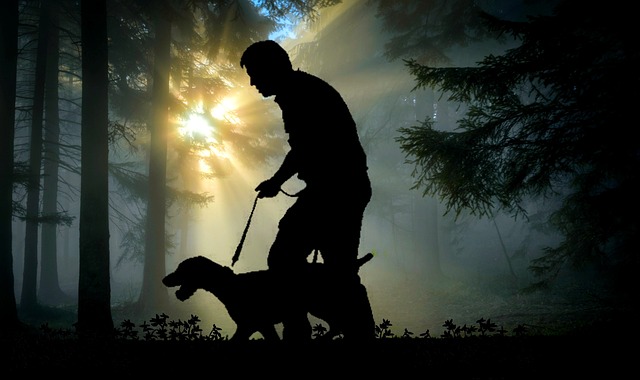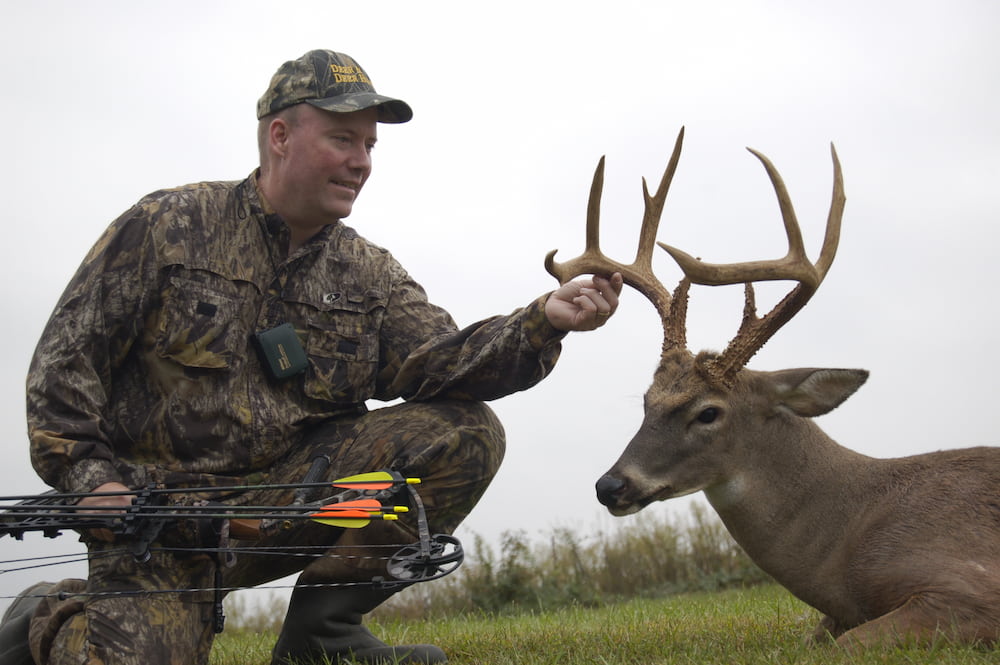The right to hunt with a gun, as well as the sports culture that surrounds hunting, are fundamental components of a particular American identity that dates back to the 19th century and the period of colonial expansion westward. However, from the second half of the 20th century onward, urbanites and historically marginalized peoples, including groups who benefited from the Civil Rights era, were less and less likely to view hunting as a part of a proud American past.
While rural white Americans saw hunting as a crucial badge of identity, these communities were more likely to see it as a leisure activity connected to the legacies of oppression. Nowadays, hunting as a sport is frequently the subject of debate in both the United States and other countries. So, is hunting a sport?
Please read on.
Table of Contents
What Is Hunting?
Hunting is defined as the act of chasing or following another animal in order to kill, typically with a gun. The purpose of the hunt differs depending on the context in which it occurs but, generally, the term “hunting” refers to a cluster of activities in which humans consume free-living animals.
Instead of Indigenous communities attempting to preserve hunting traditions that are important to their culture, this article focuses on modern hunting as it is practiced today by colonizers.
The United States is another area of emphasis., though colonizers have also been responsible for the spread of a certain ethos of hunting worldwide. In Africa, where trophy hunting and other forms of sport hunting arose as a result of Western colonialism, one research article from 2019 found that 70 percent of social media posts on the topic by Africans “expressed that neo-colonialism is at the heart of the ethical debate over trophy hunting.”
Is Hunting A Sport?
Sport is typically described as a physical contest between competitors, occasionally used to amuse spectators. Each year in the United States, hunting competitions are held., where participants earn significant prize money for killing free-living animals, frequently in the name of wildlife management.
Hunting can also be a cultural or social activity, a non-competitive form of recreation. But even this type of hunting features the trappings of competitive sport, fitted out with rules of conduct and a sense of achievement amongst its leisure-oriented participants.
In a 2021 article in Human Dimensions of Wildlife, Michael Allen and Erica von Essen examine and criticize canned hunting as well as hunting with new technology. In canned hunting, animals raised in pens and enclosures are released on private ranch lands so that a paying tourist can be sure to successfully catch their prey. Hunting that has been technologically improved may involve the use of GPS devices, weather-reading devices, helicopters, and remotely activated rifles.
Is Hunting A Sanctioned Sport?
Depending on the location and the types of animals killed, hunting may or may not be considered a legal sport. In the U.S., legally sanctioned hunting competitions occur each year in 42 out of 50 states, drawing “unknown thousands of participants,” according to reporting by Kim Frank from Earth Island Journal.
According to Frank, teams with an average of four competitors must pay a $250 entry fee to enter one such competition, the West Texas Big Bobcat Contest. Teams had to kill five foxes or five coyotes in order to be eligible for the $50,000 grand prize in 2020. The winner was required to dispatch the heaviest bobcat within a 24-hour period. Prize winners have received a combined total of $3.1 million since the contest’s inception in 2008.
groups like the Humane Society of the United States and To outlaw these competitions, Project Coyote has launched a campaign. And state legislators and officials in at least eight states agree — Several states have outlawed competitive wildlife killing, including Arizona, California, Colorado, Maryland, Massachusetts, New Mexico, Vermont, and Washington. These states instead use alternative, nonlethal methods to manage wildlife.
Why Is Hunting Considered A Sport?
When there is money or prestige associated with winning a particular competition, hunting qualifies as a sport in the truest sense of the word.
At the same time, wildlife killing contests deviate from many aspects of the ethics around hunting animals for food. Rather than being consumed or used in other ways, animal corpses are simply disposed of. The animals are frequently killed by any means necessary and don’t have a fair chance to flee.
These predator hunting competitions are particularly contentious. Often referred to as “sport killing,” the act of killing predators such as wolves and coyotes is typically not even considered “hunting” by hunting clubs. Such self-regulatory hunting organizations and state laws uphold moral standards for hunting some species of wildlife, such as deer and moose, but not others.

How Long Ago Did Hunting Turn Into A Sport?
Though it is tricky to ascertain an exact date by which hunting became a sport, historical evidence for “aristocratic celebrations of hunting” date as far back as ancient Roman times, as depicted in a fourth-century illustration. In western Europe, Norman rulers developed hunting techniques that used horses, dogs and hawks to chase targeted animals to the point of exhaustion (“par force” hunting).
The development of hunting culture in Europe during the Middle Ages as a pastime for affluent people depended on codes, manuals, and an insider vocabulary. Noble people were allowed to hunt hares, harts, wolves and boars, while peasants were usually only allowed to hunt “vermin” such as badgers and otters. Poaching is the term used when hunting is prohibited. Poaching was also a popular activity throughout this period and into modern times.
From the 18th century onward, hunting came to be seen as an image of war, an activity tied to colonialism and its “advocacy of righteous violence.” At first, there was cultural ambivalence toward hunting in the United States. One account of the dynamics at play in the U.S. hunting culture, English-style hunting was imposed in the American South as part of a social hierarchy in which planters clashed with hunters in other communities — Native Americans, hunters for profit, Black communities that were both enslaved and free, as well as white settlers. Daniel Herman writes that the American Revolution was a turning point in white Americans’ views on hunting, after which it was thought that hunting with guns “empowered freedom-loving white men to triumph over the British, followed by Indians, Slaves, and then Mexicans.”
American hunting in the 19th century. was particularly romanticized among elites, as both an antidote to industrial modernity and a chance to embrace the latest in weapons technology. Cultural representations of hunting also tapped into Americans’ sense of adventure during the U.S.’s westward colonial expansion. Among dominant colonial settlers, the hunter was seen as a “natural man,” “possessed with a sense of dynamic virtue and pioneer instinct well suited to his chosen terrain,” writes Karen Jones on hunting culture in the 19th-century American West. President Theodore Roosevelt saw hunting as part of necessary “remedial training in barbarism, violence, and appropriation,” according to Jones.
In the United States, hunting developed into a sport. in the late 19th century, Herman argues, spearheaded by middle-class men including “doctors, lawyers, ministers and clerks.” In 1873, the first issue of Forest and Stream magazine, a publication devoted to outdoor pursuits for these men, was released. Among other people, Roosevelt founded the Boone and Crockett Club in 1887 to promote the image of the sporting rifle hunter. Membership in the club required the killing of three large Mammals of North America.
Eventually, according to Herman, Roosevelt and his fellow conservationists pushed for state regulation of hunting, effectively outlawing subsistence and market hunting and compelling less affluent hunters to switch to sport hunting. Roosevelt and his peers’ efforts also preserved the right to hunt “big game” on public lands in the U.S.
See more about What Is A Truffle Hunting?
The Benefits Of Hunting As A Sport
Keeps Physical Health In Check
Visit the jungle or the hunting grounds instead of the gym. You can get a good cardio workout while trailing and hunting for animals. Your heart rate will increase, and the improved blood flow will result in better overall health. Hunting equipment, especially rifles, can be heavy, so lifting it regularly will develop your biceps. Not to mention that every time you score a goal, the excitement of it causes an adrenaline rush, which activates glycolysis and increases glucose production.
Bonding Time With Family
Why not take the entire family on a hunt instead of spending time watching television? As it requires a lot of trust, communication, and teamwork, it is a fantastic way to strengthen relationships. A successful hunting trip will also allow you to celebrate with one another and even prepare dinner using the taken game. Surely, there is no better sensation than that. The young ones can learn a lot about the outdoors and pick up skills that will be very useful to them in the future. If going hunting is a family tradition, make sure to uphold it because it will make for wonderful memories in the future.
Develop Skills
Hunting undoubtedly gives you the opportunity to learn skills that improve your personal development. Discipline, patience, better time management, and heightened alertness are a few of these abilities. You’ll notice that you are no longer sluggish or disorganized but are instead energized and well-groomed. Additionally, hunting helps you learn survival skills, which are crucial because you’ll be interacting with wild animals. It aids in maintaining mental acuity and improving your capacity to recognize danger. An absolute top priority must be safety.
Balance The Ecosystem
Finally, by making hunting a sport, you will contribute to the ecosystem’s balance. Deer typically breed quickly and can overpopulate because of their rapid population growth. Due to these deer consuming the majority of the primary producers, food chains and food webs become unbalanced. As a result, many other species become competitive, and the smaller and weaker ones eventually perish. So it contributes to the ecosystem’s balance by killing a few hundred deer annually.
When Is Hunting Not A Sport?
When hunting is prohibited or when it is not a sport, it is not considered an activity. For instance, when hunting is a cultural or professional activity used to obtain food, as it is for subsistence hunters, Indigenous hunters, and commercial fisheries, it is not regarded as a sport.
Many people in the United States support animal rights and animal protection. are partnering with wildlife management professionals to communicate that there are more effective ways to prevent predators from entering protected areas than killing contests.
See more about Is Hiking A Sport?
Is Hunting Regarded As Cruel To Animals?
The opposition has assembled quite a strong case. Below, you can read about their most adamant points against hunting:
- Animals are taken during sport hunting not out of necessity but for recreation. Animals are killed, their trophy parts removed, and then left in the field to rot because the end goal is frequently a trophy.
- In the end, the main driving force is not population control. The largest racked males are frequently targeted by hunters because they are seeking the most impressive trophy. This tactic disturbs the sex ratio and removes the healthiest animal from the herd.
- Anti-hunting groups contend that it is unnecessary, even if hunters were only concerned with population control. The weak and unwell members of the herd would be taken by nature, giving the strong members of the herd success.
- Sport hunting, according to some hunters, can shield people and other animals from grizzly bears and mountain lions. However, research has shown that when left alone, these species don’t appear to become overpopulated. They won’t need to leave the forest and interact with people if there is no competition among them.
- Bows and guns may be undertrained or inconsistent. Bad shots are extremely dangerous to humans and animals


